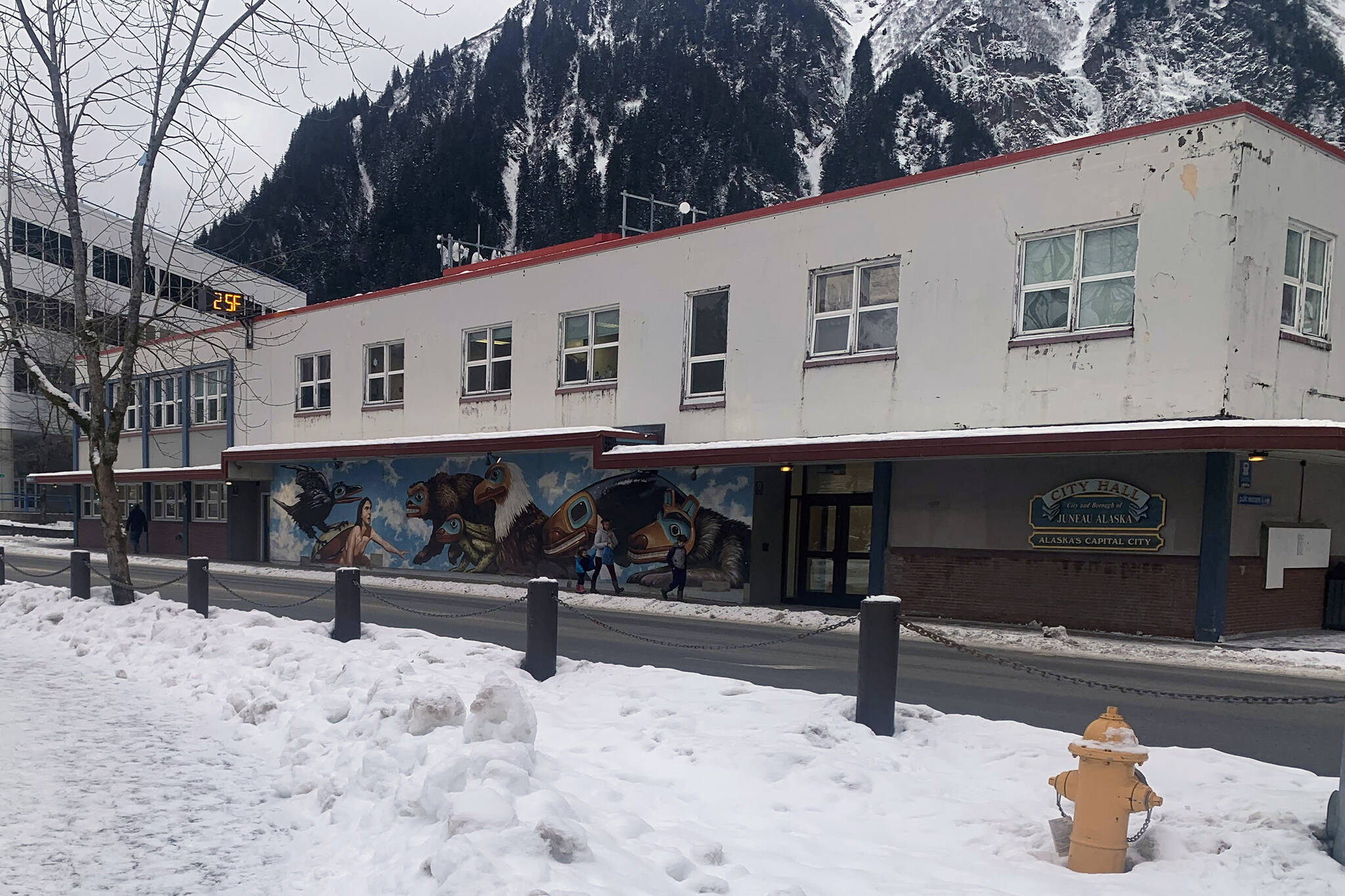By Win Gruening
When the idea of a new city hall in Juneau surfaced several years ago, the idea fell flat. State budget tightening had impacted city finances and the thought of spending $27 million on a brand-new government building (complete with a waterfront view on prime downtown real estate) seemed excessive.
City Manager Rorie Watt stated the project would consolidate city employees in one central location, make operations more efficient and eliminate the need to rent space in other downtown locations, thus saving $750,000 annually.
Then COVID-19 hit and the plan went dormant.
Now with COVID-19 waning and Alaska awash in federal funding for critical infrastructure, the proposal has been resurrected. This time, however, city officials have mounted a public relations campaign to convince the electorate that their original idea had merit.
Last October, an online survey was conducted to gauge public opinion about the project. The survey captured 1,326 responses – approximately 4% of Juneau’s population. About three-fourths (74%) of respondents indicated they were supportive or strongly supportive of building a new city hall instead of continuing to rent office space, while 18% indicated they were opposed or strongly opposed. Nine percent had no opinion.
City officials are now using this unscientific survey as evidence that the majority of Juneau residents support the project.
However, as noted in the survey, it represented a self-selected sample rather than a random sample and results “should not be considered statistically representative of Juneau’s adult population.” In addition, approximately 17% of those surveyed were city employees who may have been biased in favor of new quarters. Respondents were not prevented from voting multiple times.
Somewhat misleading in that it didn’t mention the cost of the project, the survey only disclosed that reduced space rental costs could finance a $12 million 30-year bond. How many respondents thought $12 million was the full cost?
Using a dozen different criteria (such as parking, cost, accessibility, etc.) officials later narrowed down practical locations to eight possible sites in the borough. The leading candidate, to date, to no one’s surprise, is the originally proposed location, on top of the Downtown Transit Center/Parking Garage.
While the DTC is identified as one of the least expensive options, is it realistic to use the original $27 million estimate given that building costs have skyrocketed in the interim?
By placing the emphasis on this arguably questionable cost figure, other equally important considerations are being ignored. Parking availability was rated highly in the survey and accessibility was deemed important, yet the DTC offers little of either. In fact, the majority of respondents (over 60%) preferred a location in the Valley or Lemon Creek where these requirements could be met.
The former Walmart location in Lemon Creek preferred by most who took the survey was estimated to cost $38 million. Is this number credible given the dubious cost estimate of the DTC site?
Juneau’s economy remains fragile. A recent Empire article was cautiously optimistic about the upcoming cruise season but failed to mention a major cruise line bankruptcy and the on-going schedule cancellations of many cruise lines in first quarter 2022.
Unoccupied storefronts line our downtown streets. Business owners are struggling with higher property taxes. Who will fill the empty commercial property added to downtown if the city abandons its leases and vacates the current city-owned location? Are all of the economic impacts surrounding this project being considered?
Finally, how many city employees will continue to work from home, a concept favored by 61% of survey respondents?
There’s nothing wrong with evaluating more efficient options for city government. But the campaign to sell this specific concept has not bolstered the credibility of the process. Much like the $77 million Capital Civic Center mega-project, city leaders seem hell-bent on ignoring public concerns and forging ahead with questionable assumptions toward a pre-determined outcome.
Both projects will be competing for speculative federal funding and will require a level of financial support from taxpayers. Over-hyped projects, with costs that are under-estimated, usually become budget-busters. Supporters justify continuing them by arguing we already have too much invested, leaving taxpayers stuck with the final bill.
The time to ask questions and get answers is now.
• After retiring as the senior vice president in charge of business banking for Key Bank in Alaska, Win Gruening became a regular Opinion Page columnist for the Juneau Empire. He was born and raised in Juneau and graduated from the U.S. Air Force Academy in 1970. He is involved in various local and statewide organizations.

